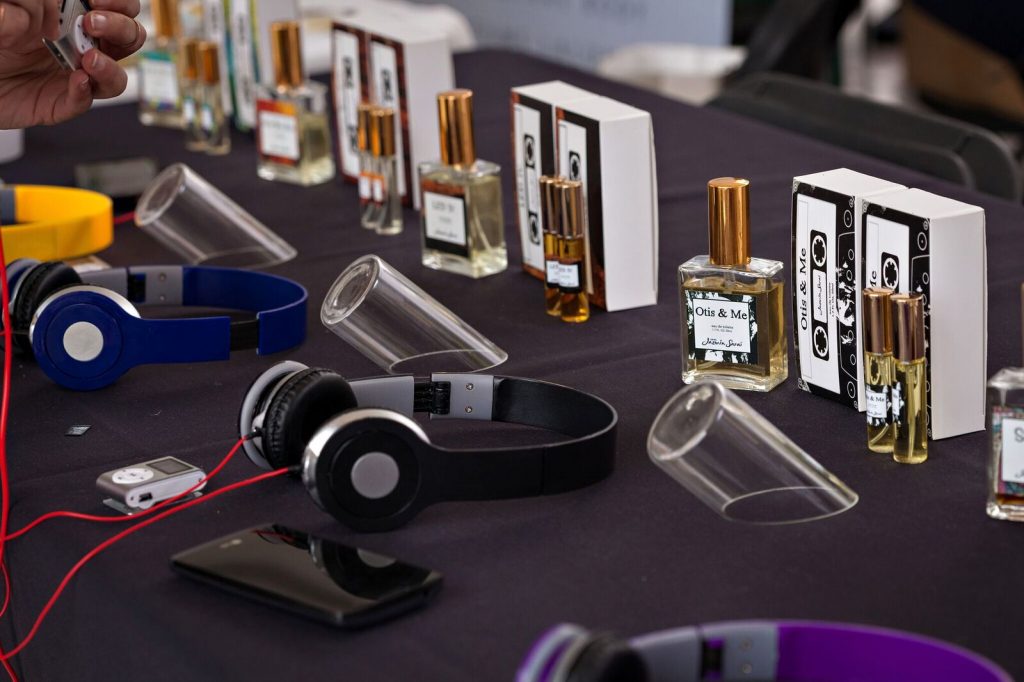Whenever we find ourselves obsessed with a new musician these days, we can find all there is to know about them in a manner of seconds. All it takes is a few clicks and keywords et voila: we are presented with pages upon pages of information covering everything from their early, musical beginnings, discographies and awards, right down to their well-publicised meltdowns and eccentric hobbies on the virtual library that is Google. For British author Dave Thompson, things weren’t quite as simple growing up.
“I was at school at a time when there were no music/pop culture biographies published whatsoever; well, no serious ones. And “pop music” was despised by everybody over the age of 30, or so it seemed. Writing essays about the careers of my favourite bands was partially a show of adolescent defiance, but it was also a way of organizing facts and information in a way I really hadn’t seen anyone else do. Although, funnily enough, one of the biggest influences in starting me on this career path was an argument I had with my stepbrother over the correct order of past Doctor Whos. There’d only been three (four including the latest, Tom Baker), but he refused to believe that Jon Pertwee came after Patrick Troughton, and I could not find a single book that would allow me to prove him wrong. That struck me as a major omission, and one that I wanted to fix – not only for Dr Who, but across the board.”
Dave’s passion for exploring the lives of some of the world’s most famous bands – U2, Pink Floyd, Pearl Jam and Red Hot Chili Peppers, to name but a few – quickly morphed from an enthusiastic hobby to a full-time profession. The late seventies saw him sneaking into work early every day to “borrow” the photocopier then painfully typing up the pages of what would become his own punk rock fanzine with one finger. It involved many an accident with glue and scalpels but he had fun while doing it all the same. Along with his incessant need to catalogue the major achievements and strange happenings in the lives of his favourite bands and musicians, his fanzine set him off on a path that would see him publish more than 100 books on the subjects of pop, rock, film and TV and yes – even football. His latest book, Britcoms FAQ focuses on the most influential British comedies to have graced the screens since the 1950’s, and delves into the various themes present in the social-commentary presented within said shows. Funnily enough, the absurdity of politics and the characters introduced in some of the most popular Britcoms dating back to the late eighties ring true in today’s post-Brexit world.
“You said it, “the absurdity of politics.” What’s kind of horrifying now is, you look back at something like The New Statesman, and it could be a documentary. The days of Yes Minister seem like a lifetime ago. As for the future – I wish Brass Eye would come back. I didn’t touch on it in the Britcoms book, but it remains the most trenchant look at “current affairs” that any show has ever pulled off.”
In Thompson’s analysis of series like Absolutely Fabulous, Monty Python and Steptoe and Son, it becomes increasingly clear that British sitcoms are of a breed entirely of their own. TV and film comedies in particular offer a profound cultural insight into the attitudes, humour and circumstances of their respective nations, and if Britcoms are anything to go by, we are to conclude that Britain has not only mastered the art of self-deprecation, it has adopted this form of self-criticism as a remedial tool to live by. While most US sitcoms soften the blows of blunt comedy by ways of focusing on character-likability and romanticised versions of dark truths, Britcoms are in favour of keeping things raw and excruciatingly realistic, even when bordering the absurd. And yet, a high percentage of US viewers are steadily coming to appreciate the British honesty and dryness much more. For Dave the reasons are simple:
“In a word, English sitcoms are nastier. The best ones aren’t afraid of confronting issues, for good or bad; they never go for the cosy option (children in US sitcoms are generally an excuse for everything to get cute and sweet; in the UK, they’re more likely to be the cause of even more problems). They don’t feel compelled to always have happy endings. Think of The Fall and Rise of Reginald Perrin, and a one line pitch for the series – “it’s a comedy about a middle class suburban office drone who has a nervous breakdown, and it ends with him committing suicide.” Or even The Good Life – “a comedy about a middle class suburban office drone who averts a nervous breakdown by convincing his neighbours and his boss that he’s having one.”
British sitcoms continue to thrive, and with a new generation of TV writers such as Phoebe Waller-Bridge (Fleabag, Crashing), Sharon Horgan (Catastrophe) and Will Sharpe (Flowers) setting the tone of the 21st century, surely we can expect a complete exploration of this new category of Britcoms by Dave in the near future. But for now, pop on the kettle, get the biscuits ready and sit back with your copy of Britcoms FAQ to reconnect with some of the best characters on British television.




